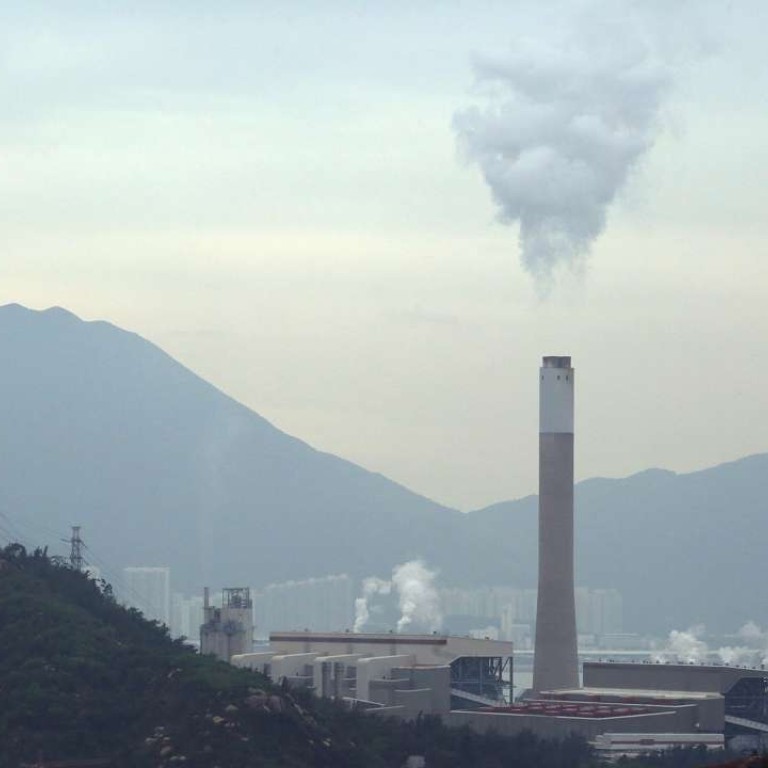
Hong Kong must achieve carbon neutrality, says veteran environmental scientist
Ho Kin-chung says the city should lower carbon in its fuel mix, increase energy efficiency in the logistics and building sectors and open grid access to the mainland
Hong Kong should make “carbon neutrality” the ultimate target of its climate policy through better investment in technology and grid connectivity with the mainland, says a veteran environmental scientist and academic.
Open University dean of science and technology Professor Ho Kin-chung said the government could “easily achieve” net zero carbon emissions, but this was being hindered by a lack of drive.
Hong Kong government promises lower carbon emissions ahead of Paris summit
Carbon neutrality is achieved by balancing carbon released with an equivalent amount sequestered or offset.

“We need to have more renewables and recapturing of carbon but we lack the space and there are too many physical constraints,” said Ho. “That is why the city must cooperate more with mainland China ... by opening up grid access.”
Ho said he understood the government wanted to open up the grid but faced heavy opposition from those with concerns about stability and reliability of electricity supply, as reflected in last year’s public consultation on the future fuel mix.
Climate deal ‘progressive’, says Hong Kong’s environment chief, but greens want more action
The government shelved the option to tap into state-owned China Southern Power Grid’s system.
The government’s new steering committee on climate change, led by chief secretary Carrie Lam Cheng Yuet-ngor, plans to publish an “enhanced” climate change work plan and carbon reduction target for 2030 towards the end of this year.
The Environment Bureau was criticised for failing to set longer term targets for 2030 and beyond going into the Paris climate conference last December.
Previous climate-related goals set by the bureau included using more natural gas in electricity generation by 2020 and reducing carbon intensity – emissions per unit of GDP – by between 50 per cent and 60 per cent by 2020 from 2005 levels.
Open University, Friends of the Earth and Carbon Care Asia will hold a forum – From Paris Agreement to Post-carbon Cities – on Earth Day, April 22, to gather support and discuss the steps needed after the Paris accord.
Under the deal, countries pledged to hold warming below two degrees, the level scientists say is needed to avert the worst effects of climate change.
The bureau says it will commission a study with the two power companies and China Southern Power Grid in the next scheme of control regulatory period – starting after current schemes expire in 2018 – on arrangements to strengthen interconnection between the mainland and Hong Kong power grids and between the city’s own grids.
Findings of the study will probably have implications on the fuel mix after 2020.

